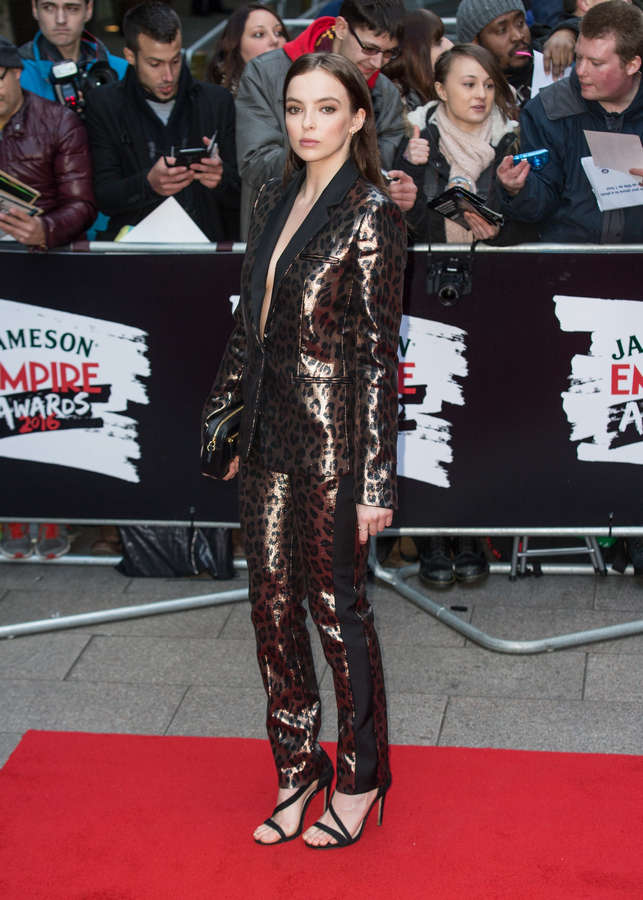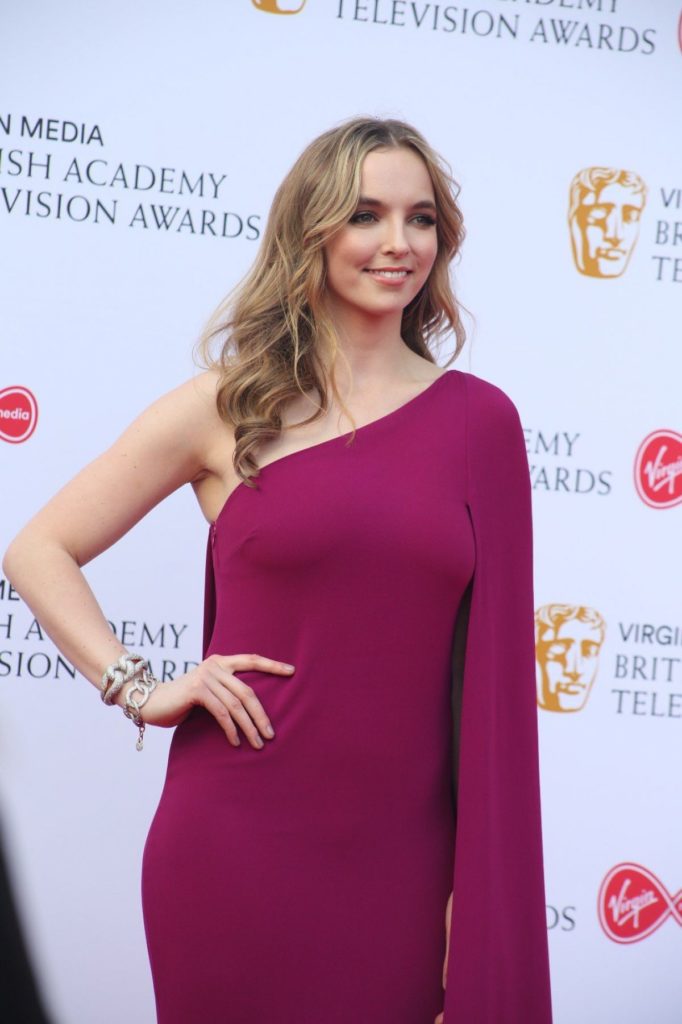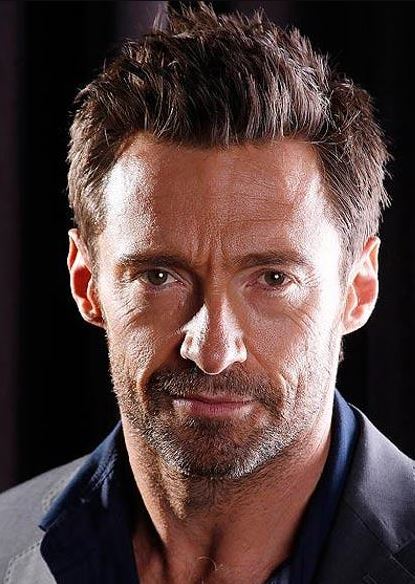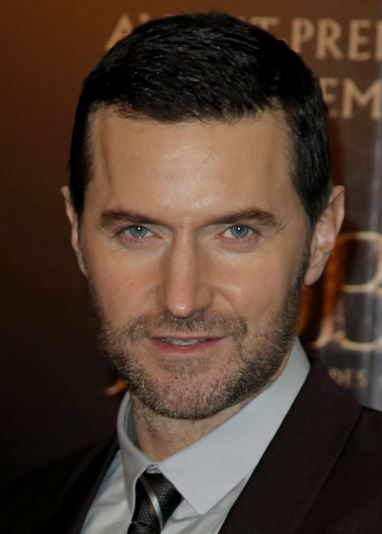I have often heaped scorn on adults who still read comic books and watch movies based thereon, but as with all things, there are exceptions to this.
One of them is the peerless Asterix series of comic books, created by the now-deceased French writer/illustrator team of Rene Goscinny and Alberto Uderzo, translated into English (and improved) by the late Anthea Bell and Derek Hockridge. (I’ve read them in both French and English, and the English ones are funnier to Anglophones because the French dialog often references obscure French customs and idioms.)
The reason that the Asterix books are so funny is that while on a superficial level, the story is aimed at children and can be enjoyed by them (Gauls beating up Romans, and the hero Asterix getting involved in all sorts of escapades), the real humor is in the writing. This is not child’s play at all, because one needs a real knowledge of Latin, some Greek, and huge dollops of classical history for much of it to make sense. (Older TV cartoons — Bugs Bunny, Mickey Mouse etc. — are similar in that while there’s a lot for kids to enjoy, the humor is often very adult, in the traditional sense.)
What often causes me to break out in howls of uncontrollable laughter are the names: the Gauls (Asterix, Obelix, Cacafonix the bard, Impedimenta the chief’s wife, Unhygenix the fishmonger and his wife Bacteria, Postaldistrix the mailman, etc.), the Romans (Spurius Brontosaurus, Gluteus Maximus, Surplus Dairyprodus, Crismusbonus, Dubious Status, Nefarious Purpus, etc.) as well as other nationalities (Ekonomikrisis the Greek/Phoenician, Wotzisnehm the Indian fakir, Mykingdomforanos the British chieftain, Edifis the Egyptian architect, etc.).
Likewise, Uderzo’s depictions of all these characters are wonderful: full of expression and action, they make the Marvel-type of cartoon drawing look like the work of children. Here are just a few examples:
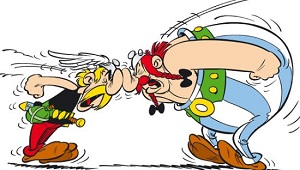

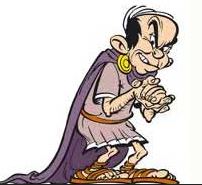
And then there are the ladies:
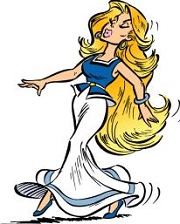
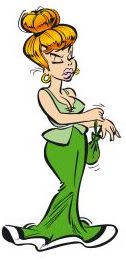

But they all pale into insignificance when there’s fighting:
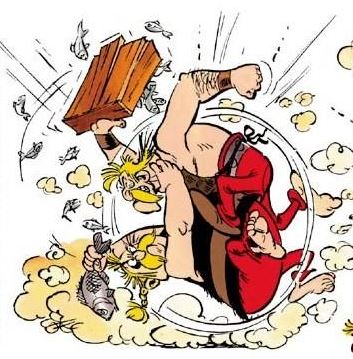
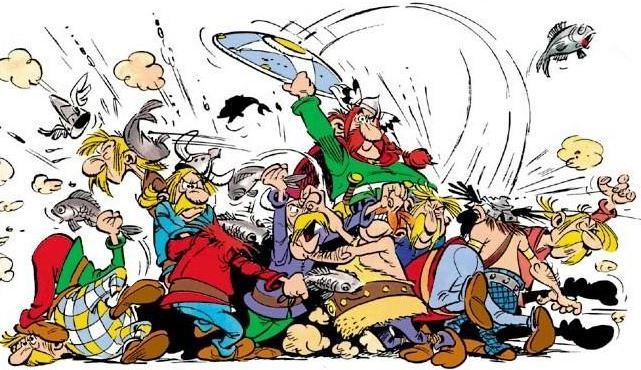
And cultural differences are always a source of entertainment, whether it’s just beer:
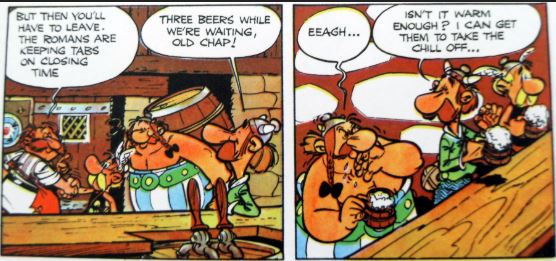
…sexism:

…a Roman orgy:
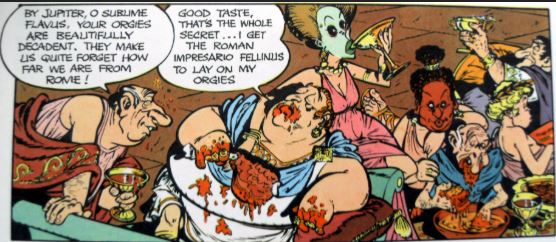
…or just a sly dig, so to speak:

…and occasionally, there are some guest appearances:
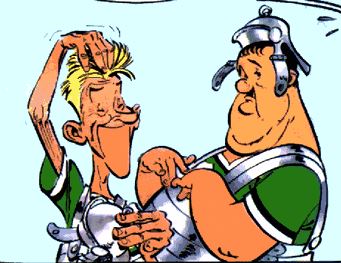
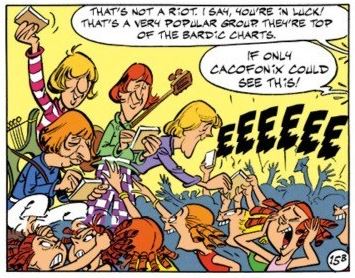
I could go on all day about this wonderful creation, but there’s a decent Wikipedia entry (for a change).
I’ve read the first twenty-four (the “true” Asterix books) in the series, and maybe a couple of others. I have only a few in my library, because they’re expensive when bought Over Here. But to re-read them is a very definite item on Ye Olde Buckette Lyste.
Oh, and to bring this all (very) up to date: in Asterix And The Chariot Race (published in 2017), Asterix’s main competitor is named… Coronavirus.


